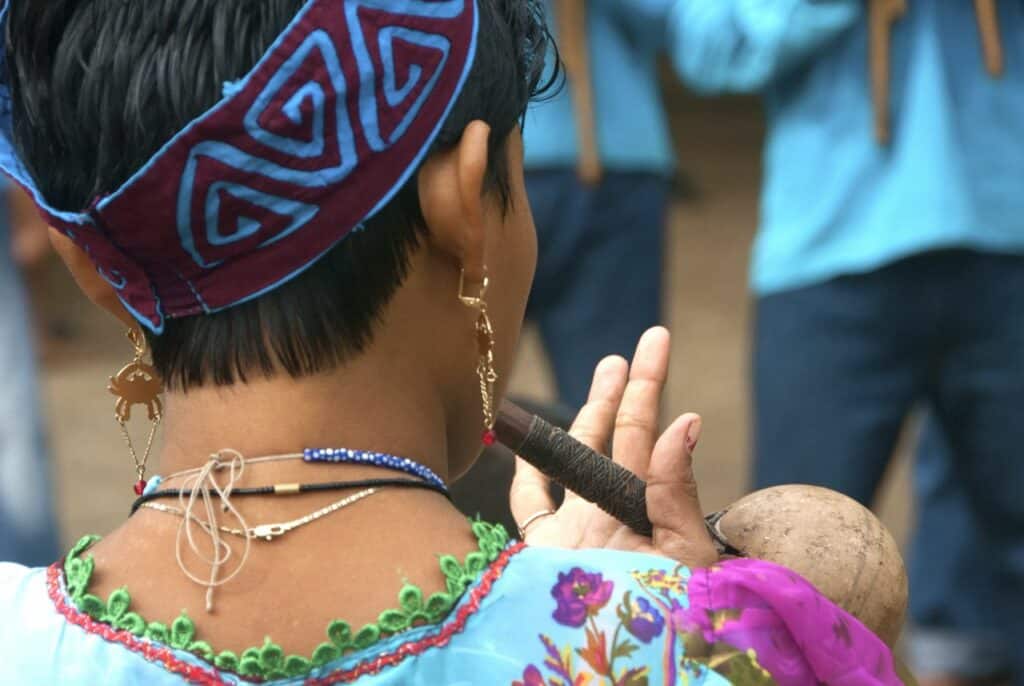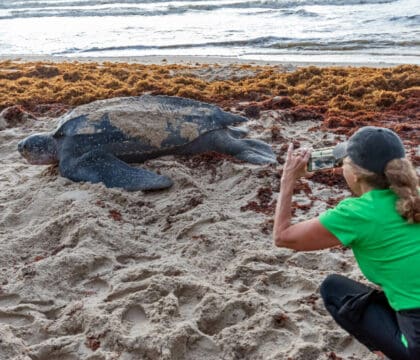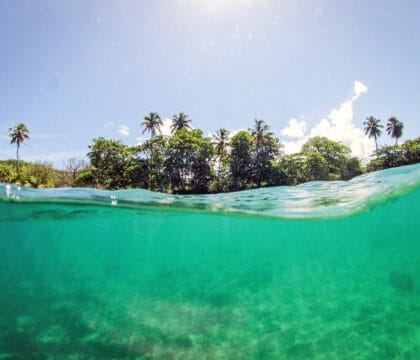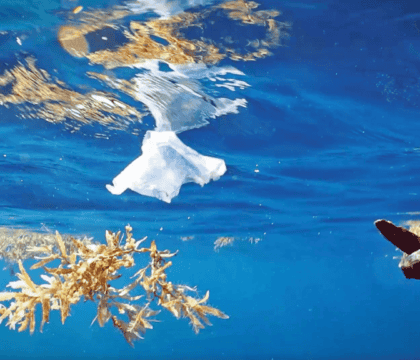October 16, 2013 • News Announcements, Program Updates
In the town’s meeting house, women in bright molas and matching red headscarves served cups of the signature cane wine drink, chicha fuerte. Amid talking and laughing guests, the mayor reminded everyone that the night’s festivities were in honor of a new baby girl, and that everyone should enjoy themselves. And under a roof of palm branches, the party was already under way.

A Guna musician performs during a ceremony in Armila. © Morrison Mast
While the chicha fuerte ceremony dates back centuries, I was surprised to notice a new addition: as people paused in conversation to gulp cups of chicha, they’d chase the taste away with round, pink lollipops. Wrappers would drop away, almost unnoticed, onto the ground around the great house, on front porches, and on the path to the river as partygoers went for a dip. These areas would be raked in the morning and wrappers would join leaves, branches, and coconut shells in trash heaps by the beach.
Seeing the plastic candy wrappers scattered on the ground, words like “litter,” “non-biodegradable,” and “pollution” all came to mind. But think about it: these disposal methods worked for hundreds of years before the arrival of non-biodegradable substances. In places where few waste management, recycling, or environmental education efforts have reached, people work with what they have and what they know.*
At this point, the notion that plastic bags harm sea turtles in the deep ocean might seem far-fetched. A story about the Great Pacific Garbage Patch might seem like an outright lie. So the first step in our environmental education efforts is to listen. We’re talking to local leaders, teachers, mothers, and little brothers to see how people clean and what they know about their impact on the environment.
By listening, we can ensure that when we get down to business, we’ll all be speaking the same language.
Stay tuned for more blog posts from Amanda and tweets @aChaiGibson.
*Note: Both local and international organizations have carried out environmental education and waste management projects in Guna Yala, Panama. See Ventocilla’s work in environmental education and the Lighthouse Foundation.




